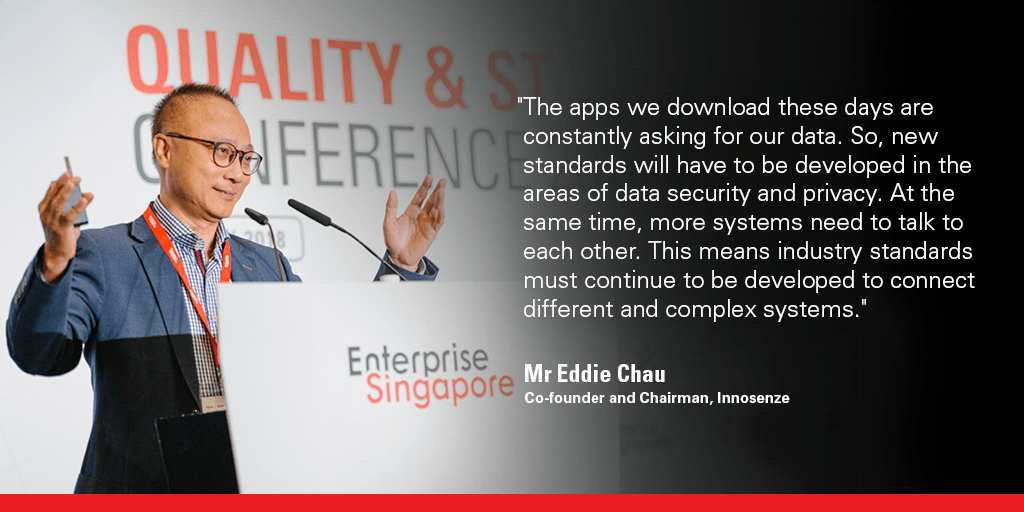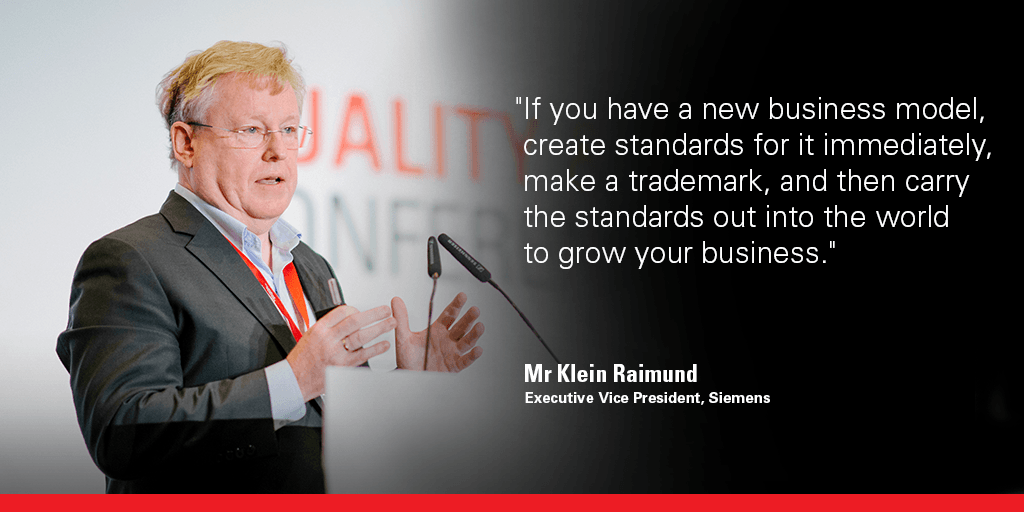The panel session of the Quality & Standards Conference 2018 tackled the topic of developing new standards in an era of digital disruption.
It was hosted by Mr Robert Chew, Chairman, Singapore Standards Council, and featured four panelists from the manufacturing and digital services sectors. Here are the key takeaways from the discussion.
1. Disruption as opportunity
Disruptive technologies – such as blockchain, augmented reality and artificial intelligence – will only play a larger role in the digital economy.
Mr Eddie Chau, Co-founder and Chairman, Innosenze, noted two upcoming trends in developing standards to support disruptive technologies:

2. How to move fast
Speed is the nature of the digital economy today. If businesses do not move fast enough, they may find themselves obsolete more quickly than they would have imagined.
Ms Judy Zhu, Senior Expert and Standardisation Director, Alibaba, gave tips on how her company remains nimble in the digital economy:
“Be open and flexible. If certain standards already exist in the industry, then adopt them. You don’t have to reinvent. Look for the right people and organisations if you want to work on developing standards together.”
Ms Zhu explained that flexibility allows Alibaba to satisfy the different Quality & Standards requirements in different countries. She added that good standards solve real problems:
“When there is no real problem to solve, then there can be no standards. Think very carefully about what should be standardised, and then how we can go about it will be clearer.”
Mr Goh Koon Eng, General Manager, Chevron Oronite, agreed with Ms Zhu and added that standards must be thoughtfully developed even in the age of speed. He said:
“Increasingly, there is a need for standards that do not become obsolete quickly. We have to ask ourselves deeper questions, peel the layers and get to the core of what standards are required. For a start, we can ask if what is needed is a set of enterprise, industry or national standards.”
3. Local businesses can shape national – and even international – standards
The panel concluded with a discussion on how players in Singapore’s Smart Nation initiative can come together to create standards.
Mr Klein Raimund, Executive Vice President, Siemens, said that businesses can play an important role in a Smart Nation by developing their own digitally-driven ecosystems with such great solutions that they become widely used and go on to set national standards. Mr Raimund cited the example of Alibaba:
“Alibaba created an ecosystem and the standards that have become so essential in China, and which are now leading international standards in cashless payments.”
He offered these parting words to Singapore enterprises:

In 2017, Enterprise Singapore supported more than 900 companies to adopt standards that improve productivity and meet customers’ requirements. Click here to find out more about how we can help your company gain a competitive edge through the use of standards.
The Quality & Standards Conference 2018 was jointly organised by Enterprise Singapore, the Singapore Standards Council and the Singapore Accreditation Council.

